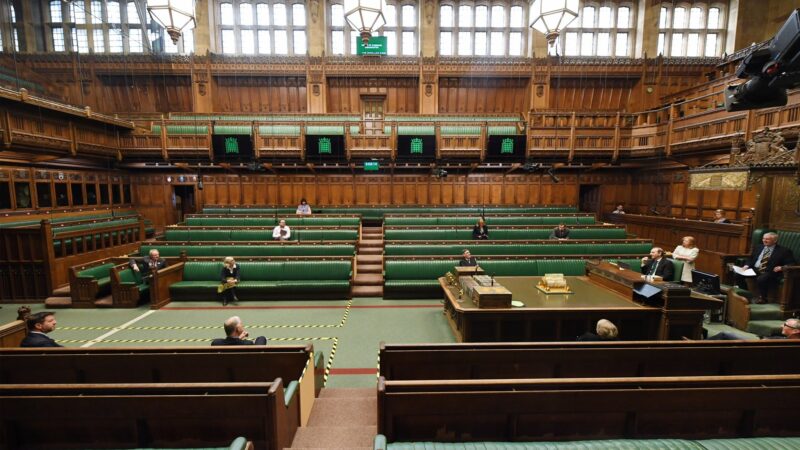
There is strong pressure being applied to bring a non-virtual parliament back as soon as possible, within days even. This was certainly the position of the leader of the Commons, Jacob Rees-Mogg. But this move should be opposed, and if necessary obstructed.
The pretence is that this shows the way in getting ‘back to normal’, and highlights the need to return to work. But the guidance tells everyone to work from home wherever possible, and find new ways to work unless there is a good reason not to. So, why go back? Why do we need 70-year-old backbenchers to travel miles just to be physically seated on a lonely bench in parliament to ask a pre-notified question, which won’t actually be answered, rather than stay at home and use Zoom?
This move back to a flawed normal should be fiercely resisted. If ever there was a golden opportunity to bring parliament into the modern age, it is now. New ways of working, brought in with commendable speed during the crisis, are showing how a move can be made away from the ineffective and inefficient fancy-dress pantomime of parliament. And this could also greatly reduce the absurd costs of refurbishing the ancient buildings whilst preserving all the perks and privileges of a small number of MPs and Peers.
It is time to decentralise and end the London-centric attitude – and all which that brings. Maybe the need for a modern chamber points to a virtual one, not one that will be refurbished at a cost of billions of pounds and delivered years after it was planned! The argument for keeping parliament firmly rooted in London – because that is where the civil servants and the offices of state are – should be stood on its head with a genuine move to put important government offices outside the capital. And this should be joined up not by first class train travel or chauffeur driven road use, but by secure modern communications technology.
How much better could scrutiny be if experts were able to give evidence to ministers or committees without being dragged to some stage set in Portcullis House, or into the more crumbling bits of the palace? Why force those who represent distant constituencies to travel quite so much, so often? Why not give more thought to how best to facilitate the vital work of hundreds of MPs’ staff, who are also subject to the ridiculous working times and arcane working practices imposed by the present system of mandatory attendance in London?
A weak and incompetent government does not want its flaws exposed. It would prefer to go back to the reliance on a Commons hidebound by procedural nonsense, where its large majority allows it far more control – both of what business is conducted and then how it is conducted. The government can pack the chamber and use party loyalties to feed helpful questions and interventions. The aggressive and confrontational bear pit is not a good example and many MPs find it unpleasant.
Labour should lead the opposition to a hasty return. The best emerging example of how the government is worried enough to force this return is how Keir Starmer has been able to more effectively ask the PM questions – without the barracking baying and other idiotic behaviour from ranks of supportive Tories bolstering Boris’ bluster. MPs, especially those less disposed to the oratorical style of speaking egged on by supportive mates, are making cogent arguments without constant interruptions and grandstanding. This can only be an improvement.
Despite the grudging minor changes in the last decade, parliament is still laughably poor at being a modern place of work – instead, it favours being a set for a historical drama. The traditionalists want to get back into their comfort zone. And comfortable it certainly is. They argue that an example should be set by returning to work – but it is a terrible example, and the experiment with modernisation already forced on parliament has shown that real alternatives are possible. Even voting can be achieved remotely.
The pageantry of events, like the opening of a parliamentary session with a Queen’s Speech, can perhaps be preserved as some kind of tourist attraction, and to satisfy those who are addicted to dressing up in strange attire. The fantastic historical palace can be fully exploited as a world heritage site instead of tearing bits of it apart to lay down ethernet cables. Back to normal is a terrible idea.



More from LabourList
Exclusive: Poll shows Starmer more trusted than PM on Middle East crisis
Revealed: Poll shows 1 in 4 Tory voters says Rayner faces ‘smear campaign’
‘Ignore the noise – the soft left is alive and well in Open Labour and beyond’